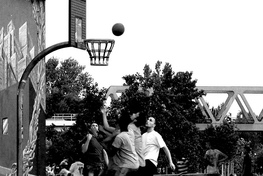 Today's exploration of near enemies is a tough one for most people. We may acknowledge that mentor and parent are two distinctly different things but many mentors' behavior tells a different tale. The difficulty lies in the hierarchical nature of the relationship. A mentor is there to guide and to teach the apprentice the skills they need to learn to succeed. A parent also does these things but the parent role comes from a much different place and has a much greater responsibility. Let's Create Better Definitions Mentor (n.) - An individual who knows more or is an expert in a given area that coaches, guides, and teaches another person to also be proficient in that skill. They give their apprentice the tools to function independently and their work ranges from initial skill building to refinement. [Also read 8 Things You Should Hear From Your Mentor]. Parent (n.) - An individual who raises a child and has an obligation and responsibility for the child's behavioral, emotional, intellectual, moral, and spiritual development until a certain age. A parent provides opportunities and intervenes on behalf of their child when it is needed. A parent also has the capacity to reward good behavior as well as punish the bad. We Go With What We Know The mentor-apprentice relationship is definitely a hierarchical relationship -- it's not a truly peer relationship. When you have the skill-training hat on, you are not equals. You are sharing your knowledge and teaching. You are engaging, asking questions, and sharing your knowledge in a structured way. When you take that skill-building hat off, you become peers. You switch over to a friendship of equals. You get to relax around each other and be adults with lives and experiences to share together. This putting the hat on and taking the hat off is where the confusion lies. If you blur the boundary, you leave the mentor hat on all the time and that isn't healthy for either of you. An Apprentice is Not a Child There is a second near enemy lesson with this one and it is the difference between apprentice and child. An apprentice is a grown adult who wants to learn a skill or needs help refining their skills. A child is a dependent who doesn't have the maturity to function on their own. This distinction is a call to really pay attention to how you treat people who are under you in hierarchical relationships. The micromanager is often stuck in the parent-child relationship model because they haven't learned properly how to engage the mentor-apprentice model. Know When to Wear the Hat and When to Take it Off If you see yourself as needing some work in this set of near enemies, start with learning how to take that hat on and off. You can even visualize yourself doing just that as you switch roles from mentor to peer and back again. Don't let the parental role bleed over into your role as a mentor. If you are an apprentice currently being treated as a child, read 8 Things You Should Hear From Your Mentor so you can do a check-in on your relationship status. Mondays – Near Enemies
Many virtues have a near enemy. These near enemies masquerade as the actual skill and are often unhealthy or unhelpful in the long term. Near enemies create a false separation. A true virtue creates a closeness to others or even your best self. Comments are closed.
|
My Writing and Other Resources for StudentsA growing collection of writing and other resources for students to use to continue their growth.
|

 RSS Feed
RSS Feed